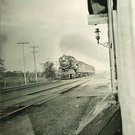So he buckled on his shoe …
To the Editor:
I’m writing in response to your editorial last week [“Stigma often amounts to blaming the victim,” The Altamont Enterprise, Jan. 12, 2023].
There is seldom a way to connect a suicide or any act of prejudice with a particular person’s utterances. That does not deny that there are connections between people’s language and such acts. My recommendations will always remain to be cautious of one’s own rhetoric for the effect it may have.
The question I would ask of the roundtable is: What do you mean when you say there is a stigma?
I would listen to the response and then ask: Why do you not say what you mean?
I have asked this many times of the Office of Mental Health. Not once has anyone responded.
We know precisely what we mean, we choose not to take the time to say it.
We can, if we choose, continue to cooperate with those taught and teaching this specific prejudice, or we can rise above them. The choice has always been ours, we were/are simply unaware we have the choice.
I do not know how that comes about. Socio-political pressure, I guess, the need to conform politically and socially. But in the midst of that socio-political conformity there are always those who see beyond it. For periods of time they remain powerless, as in the case of segregation and slavery, prejudice against Jews and the various groups we chose to “other.”
As I observe the political climate here and in other parts of the world, I see prejudice is regaining strength. I am fearful of what the future holds.
This English translation of Bertolt Brecht’s poem, “Legend of the Origin of the Book Tao-Te-Ching of Lao-Tzu’s Road into Exile,” does not do justice to his words:
Once he was seventy and getting brittle
Quiet retirement seemed the teacher’s due.
In his country goodness had been weakening a little
And the wickedness was gaining ground anew.
So he buckled on his shoe.
Brecht wrote evil had taken over.
Harold Maio
Fort Myers
Florida
